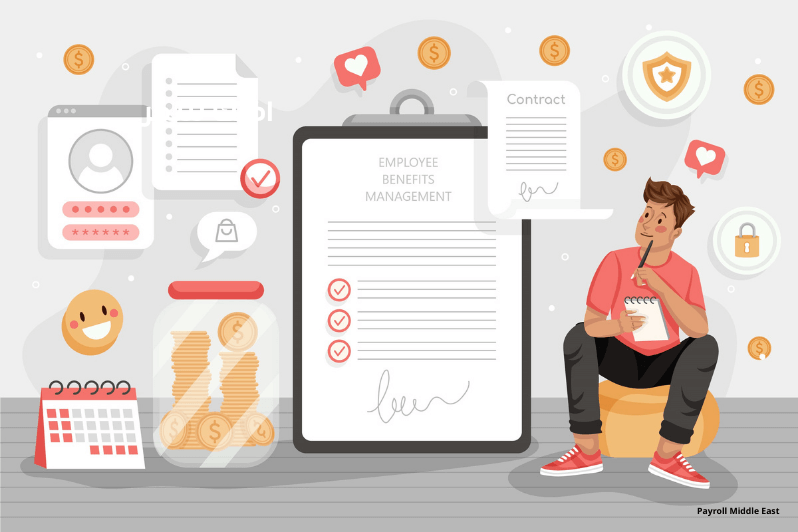International payroll transformed by technology.
So what difference does that make to you and your business?
You’d be hard pressed to find any industry anywhere that hasn’t been impacted by technology. Tech has certainly transformed international payroll services. In this post, we explore how.
1. Automation of payroll processes
If you were ever responsible for running payroll back when technology played a minimal role, you’ll know the issues you faced every month trying to calculate wages and deductions and generate payslips. Every month, figures that should have reconciled easily never did. And every month, you’d trace the error to a double keyed entry in a spreadsheet or a simple typo. Now imagine trying to run such a primitive system across a global payroll.
With automation, your international payroll processes can be completed much faster, Crucially, they’re also much more likely to be error free, which not only saves time and money in the processing, but removes the time and money you once spent tracing errors too.
Increasingly, automating international payroll systems also enables organisations to easily comply with local tax and labour laws, which can be complex and time-consuming to manage manually. By automating these processes, employers can ensure that they remain compliant with local laws, which means they stay on good terms with local unions and regulatory bodies and reduce the risk of fines and other penalties for non-compliance.
It’s important to note that automation won’t cut it. It’s important to work with international payroll experts who can act as the check and balance that ensures your automated systems are working correctly, but there’s no escaping the value automation has brought to international payroll.
2. Cloud-based payroll software
Cloud-based software enables your people to interact with the payroll system from anywhere in the world, as long as they have an internet connection. The cloud enables employees to access their payslips, tax documents and other payroll-related information online, from any device at any time. They can stay informed about their pay and benefits, upload an expenses claim or flag overtime wherever they are.
The cloud also enables employers to access real-time payroll data and make changes as needed, without having to be physically present in the same location as their employees.
For employees, cloud-based payroll software has been shown to improve job satisfaction, reducing the likelihood of payroll-related disputes and giving a sense of immediate control over the way they work.
For payroll professionals within your organisation, cloud-based systems and other tech have been shown to enhance their work1.
And for businesses themselves, cloud-based systems reduce delays, increase simplicity and cut costs. When you no longer need to install (and pay for) physical software on every computer your employees use, life gets an awful lot simpler.
3. Mobile payroll applications
Our whole world is on our phones so it makes sense that international payroll services should be too. Employers using mobile applications to manage payroll processes from their smartphones or tablets are able to harness the cloud-based systems mentioned above to manage payroll on the go. Employees can also use mobile apps to access their payroll information, submit time sheets and more.
Mobile applications also provide employers with real-time payroll data, which can be useful for making informed decisions about employee compensation and benefits. These can be especially valuable in an international context. When it’s not always easy to monitor average compensation packages across all your territories, the data from your employee app can help you identify trends in employee pay and make it easier to adjust compensation accordingly.
4. Data security for international payroll
Data security is a significant concern for every organisation operating an international payroll service. Fortunately, encryption and multi-factor authentication are making payroll data harder to hack.
At the same time, cloud-based payroll software gives employers greater backup and recovery options than would ever be possible with standalone systems.
5. Payroll integration with other systems
One of the biggest impacts of technology on international payroll services is in its integration with other systems. The most obvious of these is human resource management software (HRMS).
Your mobile payroll app may enable an employee to submit a timesheet or claim an expense, but when you combine that payroll software with HMRS, they can also book leave, manage their benefits package, read and sign off appraisals, access training or support tools and much more (depending on the system).
What’s next for international payroll technology?
It’s a risky business, predicting how technology will evolve next, but it’s a pretty safe bet to assume that AI will play a significant role. It’s not hard to see the role AI could play in tasks such as time approvals and compliance checks, yet AI’s contribution could be much more significant and far reaching.
AI analysis of payroll data could help organisations deliver greater cost effectiveness across international borders. It could identify anomalies in expenses. By combining information such as early wage requests, work patterns, sick absence and annual leave, it could identify employees experiencing financial or mental health challenges.
For any organisation with a remote workforce spread across the globe, AI could use payroll and HRMS data to help companies better support their people. It’s not, perhaps, the first benefit that springs to mind when you think of payroll software technology, but it could be the most profound.
Make the most of the latest payroll technology. Outsource your international payroll to Just Payroll and see what a difference an expert can make!




